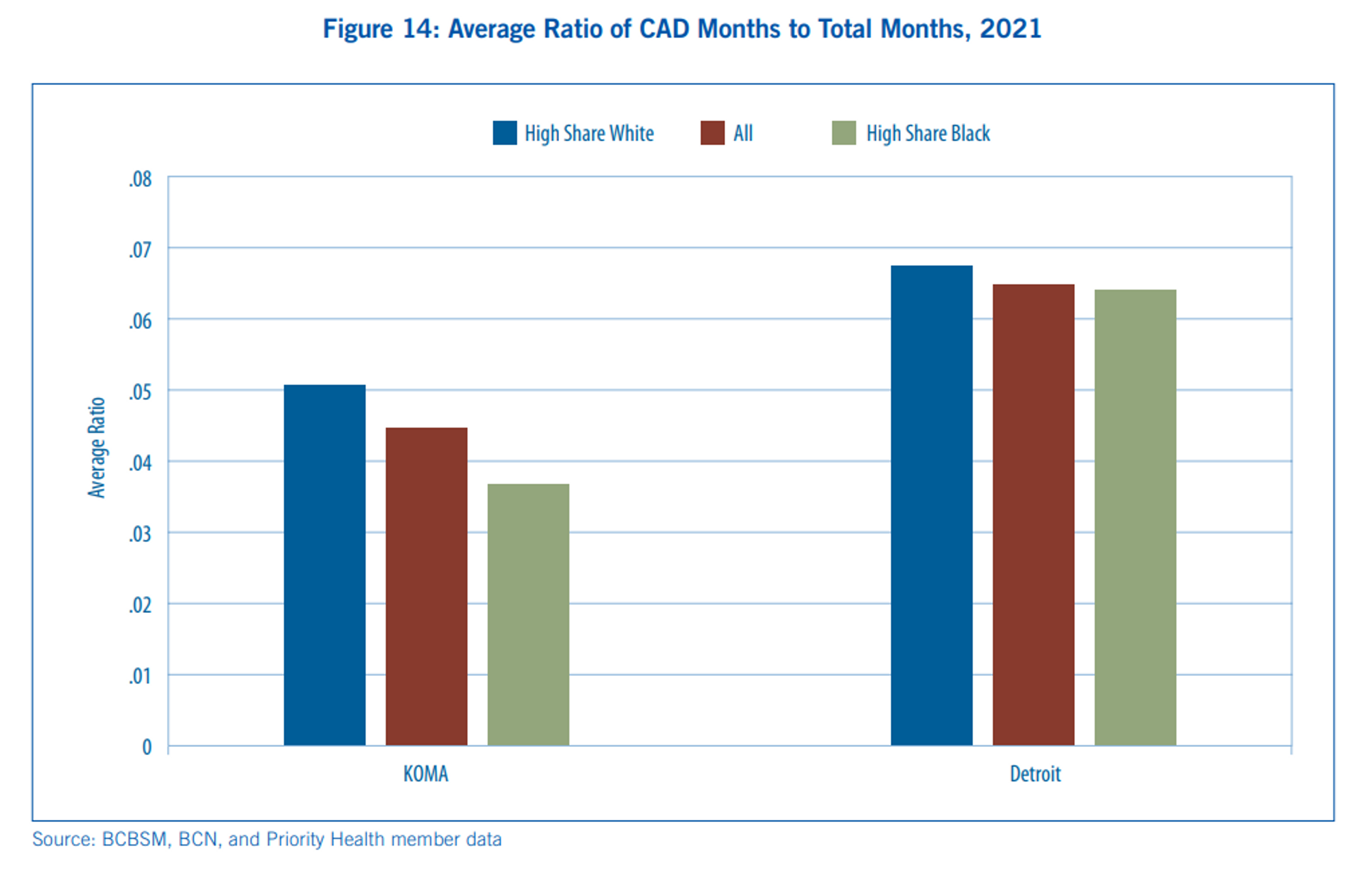Rates of Heart Disease on the Rise in West Michigan
Amy Barczy
| 3 min read
Amy Barczy is a former brand journalist who authored...

Rates of coronary artery disease are increasing in West Michigan, according to a new analysis.
The latest West Michigan Health Care Economic Forecast from Grand Valley State University analyzed data from Blue Cross Blue Shield of Michigan, Blue Care Network and Priority Health members from 2021 to offer a regional comparison between the health of West Michigan residents and of Detroit residents.
From 2020 to 2021, Kent, Ottawa, Muskegon and Allegan counties saw a marked increase in the number of new cases of coronary artery disease – primarily driven by an increase in new cases among individuals living in primarily white zip codes. This brings the total case load closer to that of Detroit, the analysts noted. Coronary artery disease is the most common type of heart disease in the U.S.

In addition to heart disease, the annual study analyzed other chronic conditions and health care industry factors.
Disparities in health outcomes continue to persist in both regions, specifically when race and income are taken into consideration. One in two non-white individuals experience in adequate sleep – trends that could worsen physical and mental health conditions. Additionally, non-white individuals are more likely to report having mental health problems.
Racial disparities in cases of diabetes have grown in the Detroit region from 2020 to 2021, as rates of Black individuals diagnosed with diabetes have increased. This racial disparity in diabetes diagnosis is not present in West Michigan, according to the analysis.
Cases of mental illness and depression spiked in 2021 in both regions, as social isolation from the pandemic contributed to poor mental health. Telehealth use for depression diagnosis continued to grow in both parts of the state in 2021. However, telehealth visits were used less in the Detroit region for diabetes and hyperlipidemia patients in 2021 while West Michigan providers used them more to see patients with these conditions.
The pandemic also played a role in risk factors with substance use and abuse:
- Men living in West Michigan have the highest rates of binge drinking when compared to women in the region, as well as men and women in the Detroit region.
- There was a surge in heavy drinking among women during the first year of the pandemic.
- Use of cigarettes and e-cigarettes are higher among non-white individuals living in West Michigan when compared to Detroit; however, rates of cigarette smoking are increasing among non-white individuals in West Michigan but decreasing among non-white individuals in Detroit.
In addition to tracking the latest news on local health condition trends, the West Michigan Health Care Economic Forecast analyzed data from 2020 that confirmed much of the anecdotal reports from health experts in the state during the pandemic: fewer people received cancer screening tests like colonoscopies and mammograms in 2020 in both West Michigan and in Detroit.
Additionally, hospital admissions dropped in 2020 as elective procedures were canceled. Analysts noted a particular trend of interest: while the number of outpatient visits sharply declined in Detroit in 2020, they increased in Grand Rapids – which is out of the norm nationally.
The full West Michigan Health Care Economic Forecast report is available online here.
Photo credit: Getty Images





